
The obvious economics of preserving the Amazon
www.economist.com/the-americas...
From The Economist
@olivierhonnay.bsky.social
Conservation biology | Agronomic ecology | Trade-offs | Professor KU Leuven | KU Leuven Plant Institute | Non-utopian https://bio.kuleuven.be/faculty/00012061

The obvious economics of preserving the Amazon
www.economist.com/the-americas...
From The Economist
Ik ben alvast niet de enige zo blijkt.
23.10.2025 07:36 — 👍 0 🔁 0 💬 0 📌 0
NEW: Biofuels globally emit more than the fossil fuels they replace, our latest study shows.
The first-of-a-kind study looks at global biofuels production today and the potential impacts of government biofuel targets.
🧵⤵️
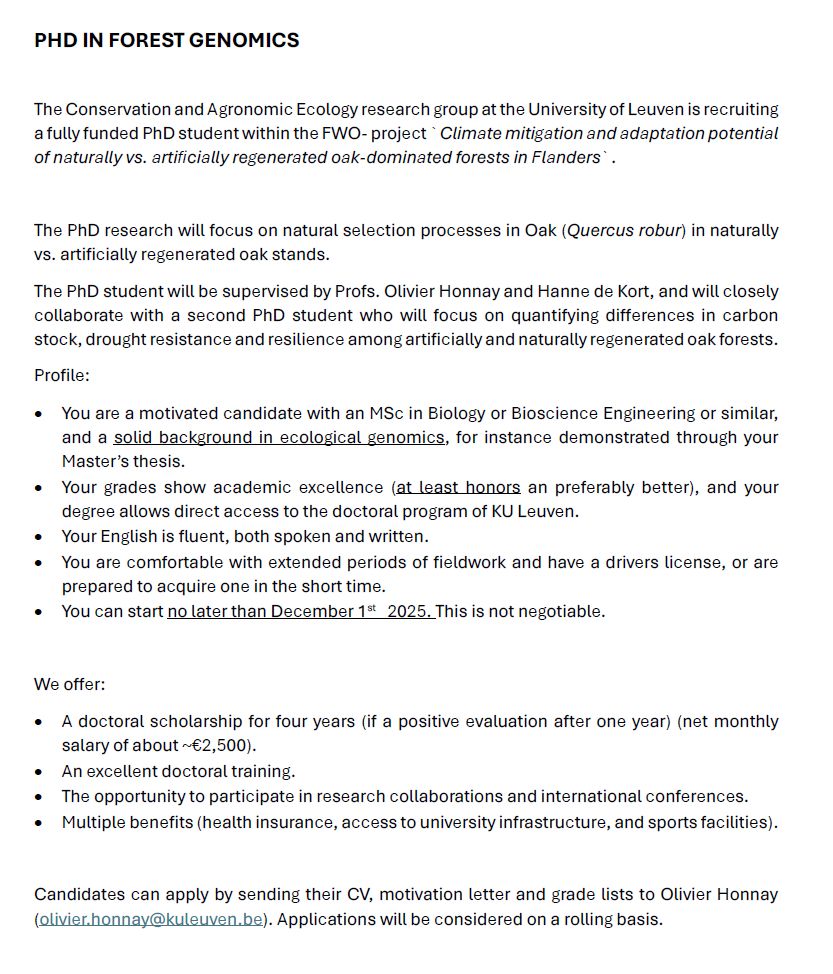
📢 Vacancy: I am urgently recruiting a PhD candidate to join a project on selection processes in pedunculate oak.
📅 Start date: no later than December 1st.
Pissed off at that bonkers press conference confusing correlation and causation, and warning women off Tylenol?
Yeah me too.
But think of that next time a nutrition study makes headlines because, say, artificial sweeteners are associated with cognitive decline - to pick an example at random.

Fertilizer DOES NOT burn up soil organic matter.
Long-term study finds "NP fertilization substantially augments both the quantity and stability of soil organic carbon stocks."
scienmag.com/long-term-n...


Waarom moeten we zo nodig wolven hebben in de Lage Landen? Opinie in De Standaard 3/9/25
04.09.2025 15:26 — 👍 10 🔁 6 💬 2 📌 0

The author must have lost his mind on this.
01.09.2025 14:16 — 👍 0 🔁 0 💬 0 📌 0
Just found out that ChatGPT effortlessly converts every thinkable old Flemish measure into English ones and the metric system 🙂.
1 Bruges hoet of wheat = 172 l ≈ 4.88 Winchester bushels.

Grime's CSR theory revisited: A whole-plant view of vascular plant functioning across contrasting environments besjournals.onlinelibrary.wiley.com/doi/10.1111/...
30.08.2025 05:37 — 👍 28 🔁 11 💬 1 📌 2
Fascinating list of the scientists who have saved the most lives, via @maxroser.bsky.social at @ourworldindata.org ,
2 of the top 3 are food related:
#1 - Haber & Bosch, for synthetic nitrogen (2.3 billion)
#3 - Norman Borlaug, for high-yield crops (245 million)
Data source:
www.scienceheroes.com
Gezocht: lector #natuurbeheer #ecologie #wetenschappen bij @odiseehogeschool.bsky.social Agro- en biotechnologie in Sint-Niklaas.
www.odisee.be/lector-agro-...
Start: het nieuwe academiejaar
Solliciteren: asap!
Diverse opdracht, 50-100% ifv invulling.
Doe ik.
22.08.2025 11:20 — 👍 1 🔁 0 💬 0 📌 0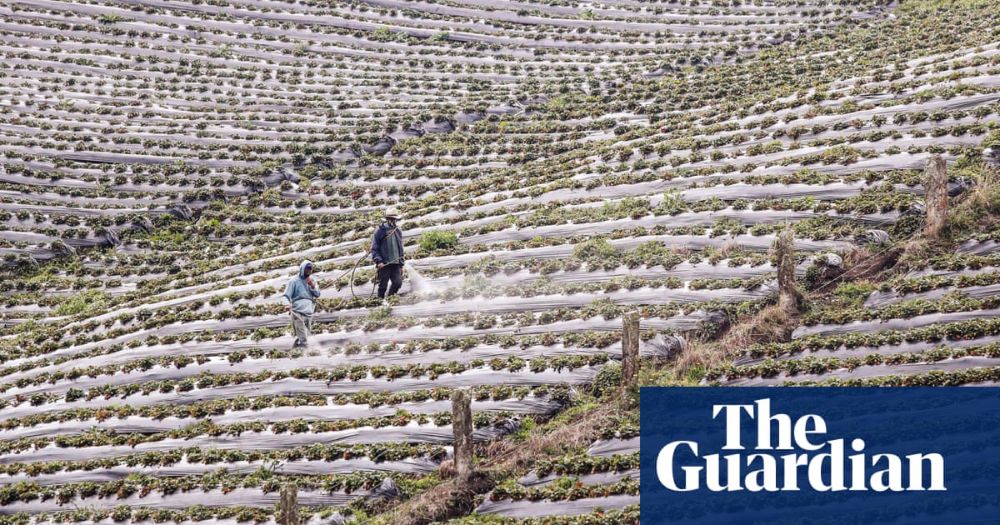
“We’re clear-cutting and broiling the planet to stuff our faces.” @theguardian.com did a deep dive into WE ARE EATING THE EARTH!
www.theguardian.com/environment/...
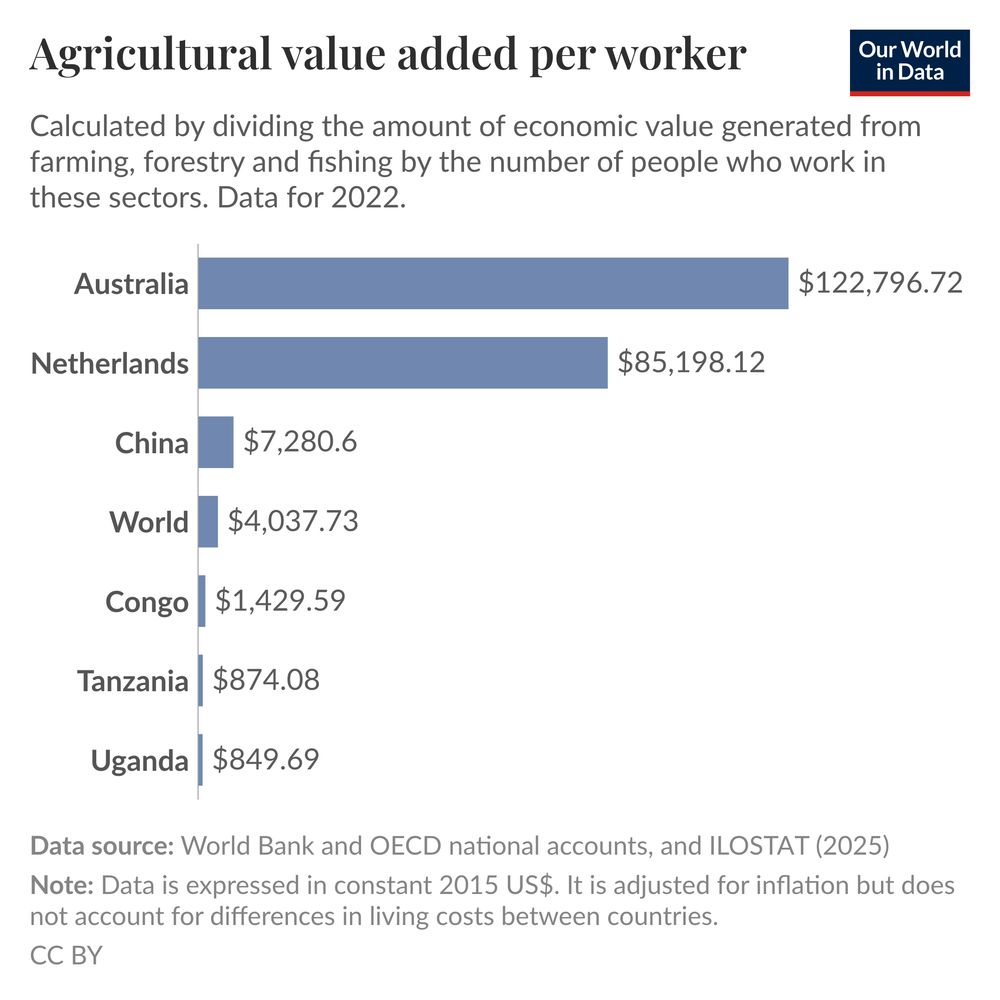
A bar chart showing agricultural value added per worker, which is calculated by dividing the amount of economic value generated from farming, forestry, and fishing by the number of people who work in those sectors. Data for 2022 is shown for 6 countries and the global average. Ag. value added per worker is relatively high in countries like Australia ($122,800) and the Netherlands ($85,200) — but relatively much lower in countries in Sub-Saharan Africa, such as Congo ($1429), Tanzania ($874), and Uganda ($850). The data is expressed in constant 2015 US dollars; it's adjusted for inflation but doesn't account for cost of living differences between countries. The data source is the World Bank, OECD national accounts, and ILOSTAT (2025). The chart is CC BY Our World in Data.
To grow food you need two things: some land and some of your time.
Land and labor are two of agriculture’s primary inputs. To build a food system that works for people and the planet, humanity needs to achieve high productivity in both of them.

@hannahritchie.bsky.social explains why increasing agricultural productivity across Sub-Saharan Africa is one of the world’s most pressing problems: ourworldindata.org/africa-yield...
12.08.2025 15:45 — 👍 24 🔁 6 💬 1 📌 1
“Probing how and why the atomic bombs were deployed against Japan has become a cottage industry all of its own.” The War Room, our defence newsletter, recommends seven of the best books about the country’s defeat in the second world war
12.08.2025 15:01 — 👍 5 🔁 3 💬 2 📌 0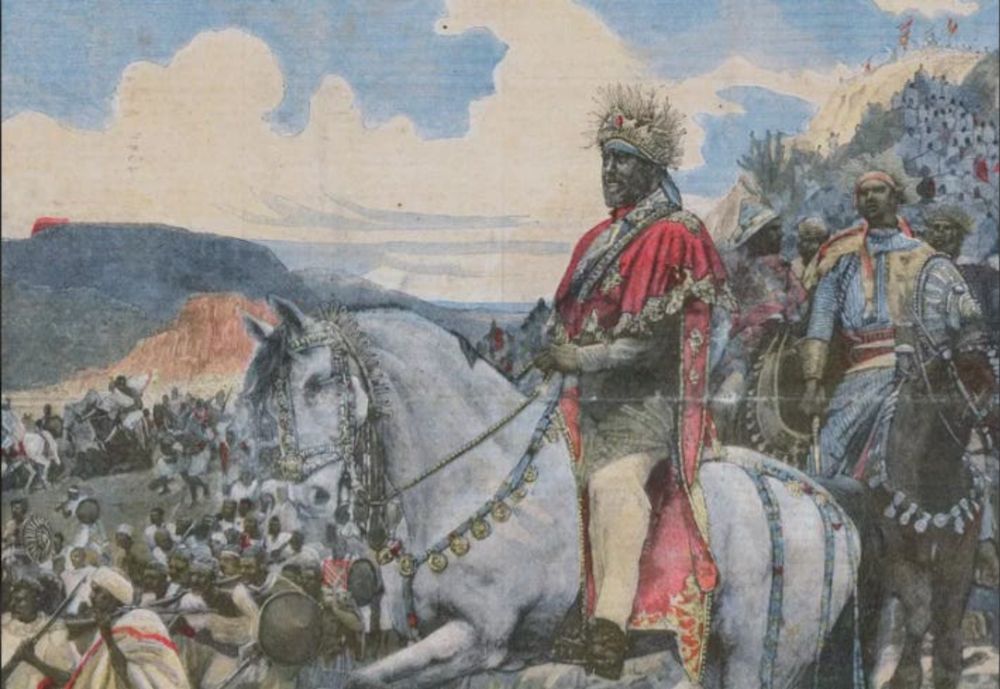
How Ethiopia avoided colonization in the late 19th century but then lagged behind in the 20th century: www.africanistperspective.com/p/how-ethiop...
07.08.2025 15:23 — 👍 17 🔁 6 💬 0 📌 1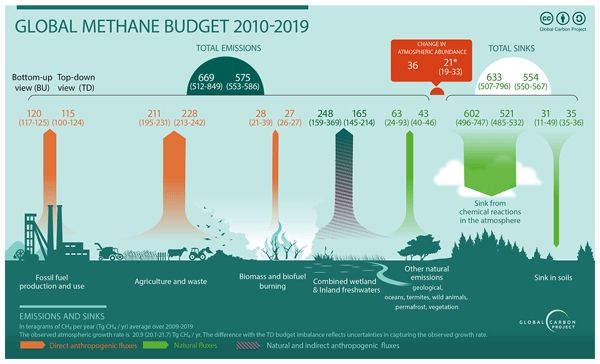
'Cows just replaced the methane from wild bison'
Not even close.
At their peak, wild ruminants incl. bison emitted ~15 Tg CH₄/yr
Today’s 4+ billion farmed ruminants emit over 100 Tg CH₄/yr
That’s nearly 7x more methane.
essd.copernicus.org/articles/17/...
Hier komt deze zomer geen festival
26.07.2025 07:36 — 👍 106 🔁 18 💬 3 📌 4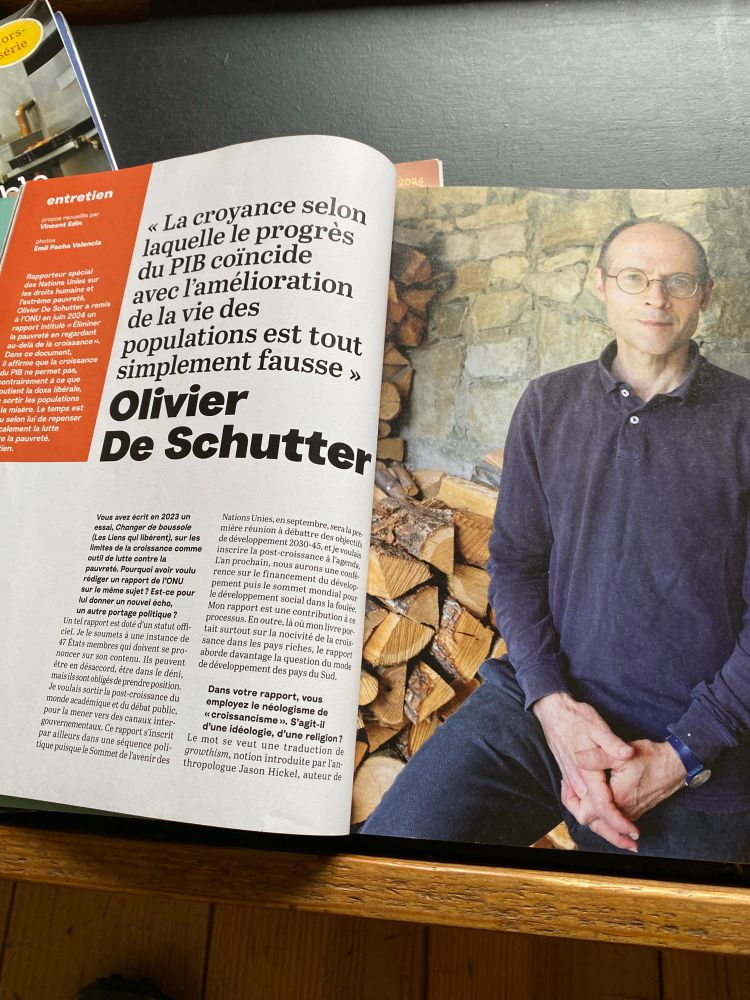
😱
07.07.2025 09:15 — 👍 1 🔁 0 💬 0 📌 0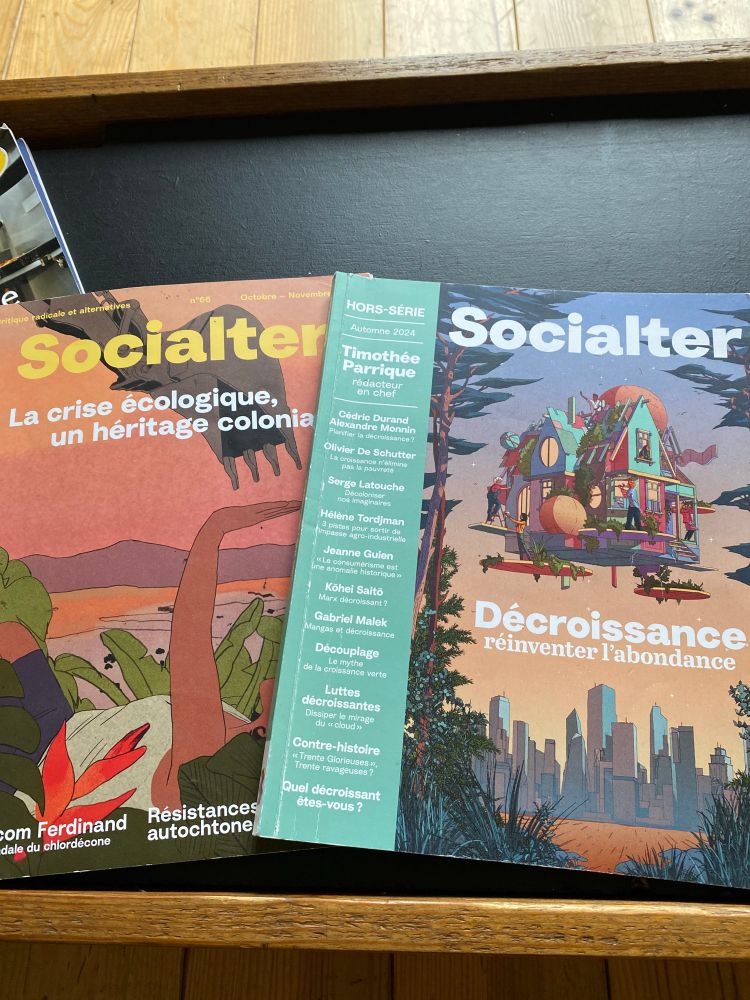
Op vakantie in het hol van de leeuw.
07.07.2025 09:15 — 👍 3 🔁 0 💬 1 📌 06. Then other people say, "we must rewild the world".
Yes. But it's not going to happen without major dietary change.
Eg we can't have grass-fed beef (the most land-hungry of all products) and rewilding. In fact, it drives a massive de-wilding.
At this point, half the enthusiasts shuffle away.
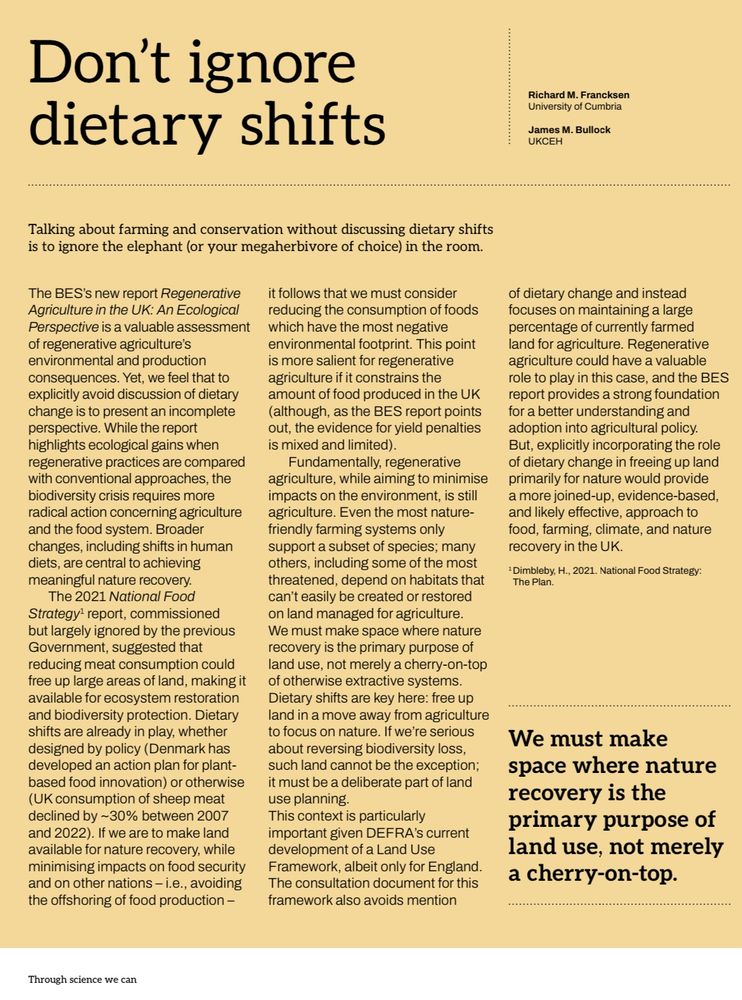
Totally agree. There seems to be the idea that regen ag will do the trick. See our response to a BES report
03.07.2025 17:31 — 👍 8 🔁 1 💬 0 📌 1Yields do matter.
Nitrogen does matter.
And orthodox agroecology will very likely not deliver the required productivity gains.
link to the paper: www.pnas.org/doi/10.1073/...
11.06.2025 07:14 — 👍 2 🔁 0 💬 1 📌 0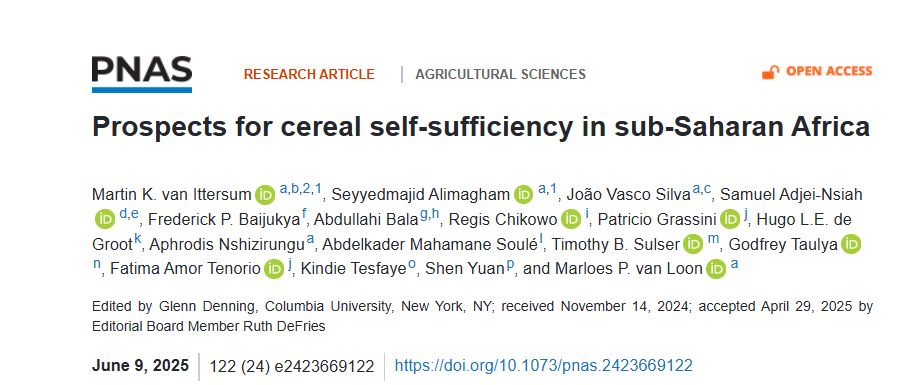
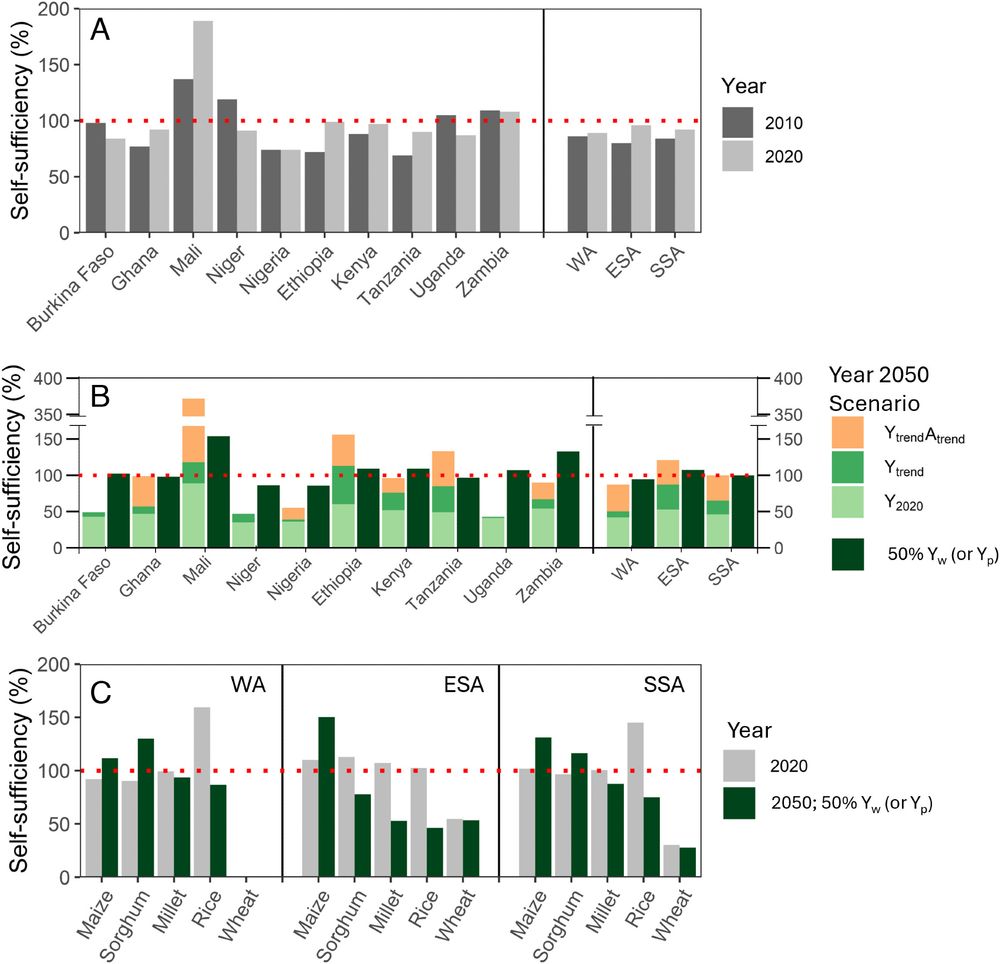
Can Africa feed itself without further expansion of its agricultural land at a high C and biodiversity cost?
=> Would require *tripling* current annual yield increase to achieve cereal self-sufficiency.
=> Big differences between E & W Africa due to differences in nitrogen fertilization regime.
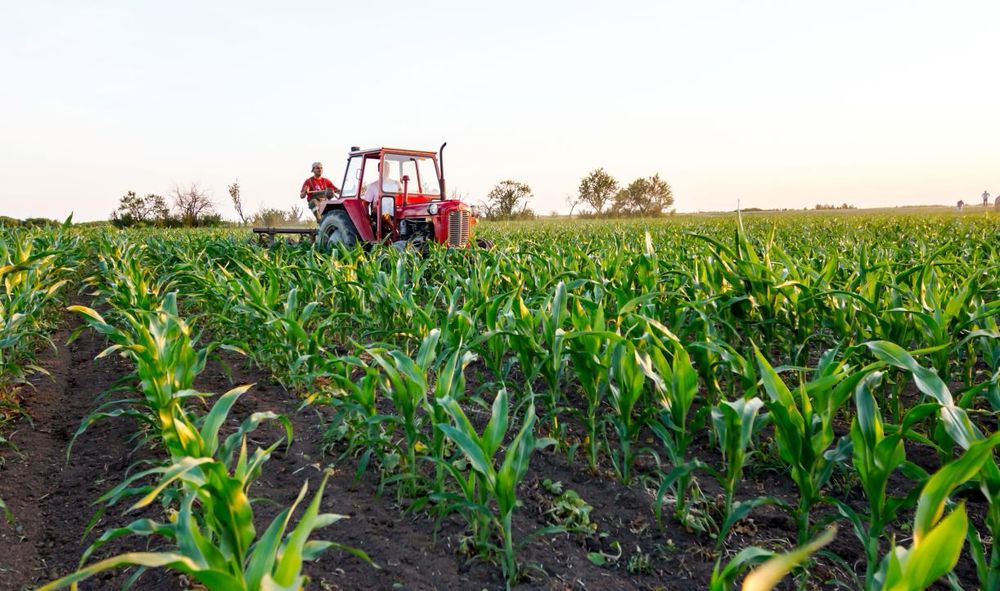
New research from my colleagues out today looking at the environmental and social impacts of food crop-based biofuels in the US, where we now use >30% of the corn supply and >40% of the soybean oil supply (on tens of millions of acres of prime cropland) to produce only ~6% of US transport fuel. 🧪
10.06.2025 23:48 — 👍 324 🔁 127 💬 13 📌 24Fascinating study. For every 1000 bears in an area, there is an associated 4% increased likelihood of a bigfoot sighting. 🧪
zslpublications.onlinelibrary.wiley.com/doi/10.1111/...